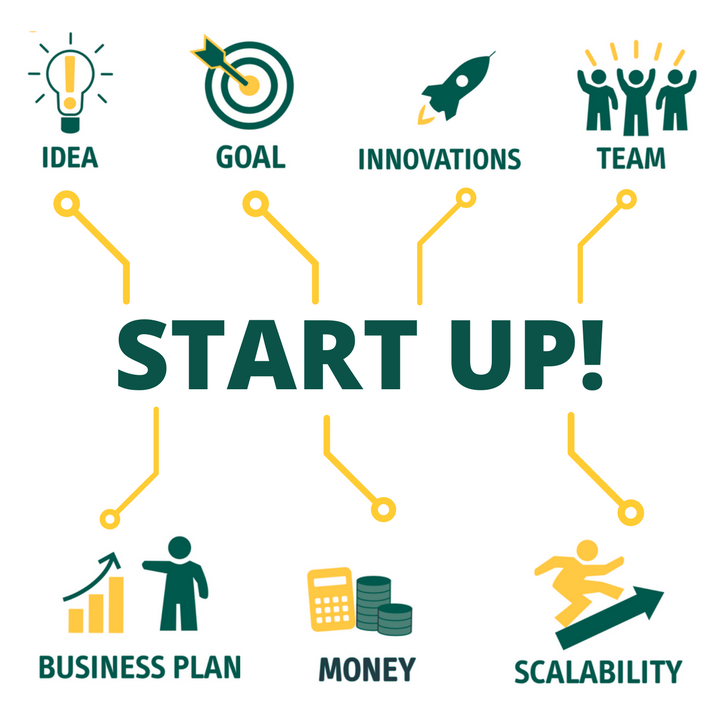Starting Your Entrepreneurial Journey: How to Start a Business
Starting a business is an exciting venture filled with opportunities and challenges. Whether you’re a budding entrepreneur or an experienced professional looking to embark on a new venture, entrepreneurship begins with a single step. This comprehensive guide will explore the essential steps and considerations in starting a business, from idea generation to execution.
Table of Contents
Understanding Your Business Idea
Before embarking on the entrepreneurship journey, gaining a comprehensive understanding of your business idea is of utmost importance. This involves identifying the core problem that your product or service intends to solve. It also requires a thorough analysis of your target customers to understand their needs and preferences and what distinguishes your offering from your competitors. Conducting extensive market research is crucial to validate your concept and identify potential opportunities and challenges in the market. By gaining a deeper understanding of your business idea, you will be better equipped to make informed decisions and create a viable business plan that sets you up for success.
Crafting a Solid Business Plan
A well-crafted business plan serves as the blueprint for your venture, outlining your objectives, strategies, and financial projections. It provides clarity and direction, helping you stay focused on your goals and navigate challenges effectively. Your business plan should include sections on market analysis, product/service description, marketing and sales strategies, operational logistics, and financial projections.
Critical Components of a Business Plan
- Executive summary
- Business description and vision
- Market analysis
- Products or services offered
- Marketing and sales strategies
- Operational plan
- Financial projections
- Risk assessment and mitigation strategies

Registering Your Business
Once you’ve refined your business idea and developed a comprehensive plan, it’s time to register your business. Choose a suitable business structure, such as sole proprietorship, partnership, limited liability company (LLC), or corporation, based on your specific needs and preferences. Register your business name with the relevant authorities and obtain any necessary licenses or permits to operate legally.
Setting Up Your Operations
Establishing efficient operational processes is essential for the smooth functioning of your business. Determine your sourcing and supply chain strategies, set up accounting and bookkeeping systems, and implement robust customer service protocols. Invest in technology and tools that streamline your operations and enhance productivity, allowing you to focus on core business activities.
Developing a Strong Brand Identity
Building a solid brand identity is critical to standing out in a competitive marketplace and forging meaningful connections with your target audience. Define your brand’s personality, values, and unique selling proposition (USP), and create compelling visual and verbal elements that reflect your brand identity. Invest in professional logo design, website development, and marketing collateral to establish a cohesive brand presence across all touchpoints.
Implementing Effective Marketing Strategies
An effective marketing strategy is essential for success in today’s business landscape. A comprehensive marketing plan encompassing online and offline channels is crucial for attracting customers, generating leads, and driving sales. This plan should include a variety of tactics, such as social media, content marketing, email campaigns, search engine optimisation (SEO), and paid advertising. To truly connect with your target audience, you must authentically engage with them. This means providing valuable content that meets their needs and interests and fostering genuine relationships that build brand loyalty and advocacy. By creating a two-way dialogue with your customers, you can gain valuable insights into their preferences and behaviours, allowing you to refine your marketing strategy and improve your overall performance.
Managing Finances Wisely
Financial management is critical to business ownership, requiring careful planning and prudent decision-making. Monitor your cash flow closely, keep accurate records of income and expenses, and allocate resources strategically to maximise profitability. Consider seeking professional advice from accountants or financial advisors to ensure compliance with tax regulations and optimise your financial performance.
Embracing Continuous Learning and Adaptation
The business landscape constantly evolves, driven by technological advancements, market trends, and consumer preferences. Embrace a continuous learning and adaptation mindset, staying informed about industry developments and emerging opportunities. Be open to feedback and willing to pivot your strategies as needed, remaining agile and resilient in the face of change.
Conclusion
Starting a business can be fulfilling, but it requires passion, perseverance, and a strategic approach to succeed. To position yourself for success and satisfaction as an entrepreneur, you must understand your market, create a solid plan, build a strong brand, and embrace innovation. It’s essential to stay committed to your vision, surround yourself with a supportive network, and strive for excellence in everything you do. By remaining determined and dedicated, the possibilities are limitless.

Frequently Asked Questions
How can I assess the feasibility of my business idea? To determine the viability of your business idea, you need to conduct market research to evaluate market demand, competition, and feasibility. Market research helps you to gather insights into your target market, competition, and industry trends. By understanding your potential customer’s needs and preferences, you can assess whether there is a market for your product or service. Additionally, analysing your competition can help you identify market gaps that you can fill. Finally, evaluating the feasibility of your idea requires assessing the resources, potential costs, and regulatory requirements.
What are the standard funding options for startups? Startups can access various funding options, such as personal savings, loans, investors, grants, and crowdfunding platforms. Personal savings are the most reliable and accessible funding source for entrepreneurs. However, consider securing a bank or financial institution loan if you need more capital. Investors, such as angel investors and venture capitalists, are another option for startups with high growth potential. Grants are also available from government agencies and foundations that support startups in specific industries or regions. Crowdfunding platforms like Kickstarter and Indiegogo allow startups to raise funds from many who support their ideas.
Is it necessary to have a business plan when starting a business? Although a business plan is not mandatory, having one can benefit your startup. A well-crafted business plan can serve as a roadmap for your business, outlining your goals, strategies, and financial projections. It can also help you to identify potential challenges and opportunities and provide a framework for decision-making. Additionally, a business plan can be helpful when seeking funding from investors or applying for loans.
Why is branding important for a startup? Developing a solid brand identity is crucial for startups because it helps to differentiate your business from competitors and build trust with potential customers. A strong brand reflects your company’s values, personality, and mission and communicates them to your target audience. It also helps to establish a consistent visual and messaging identity across all marketing channels. Creating a memorable and unique brand can attract customers who resonate with your values and messaging.
Which legal structure is best for my business? Choosing the proper legal structure for your business is essential, affecting your liability protection, taxation, and operational flexibility. The most common legal structures for startups include sole proprietorships, partnerships, limited liability companies (LLCs), and corporations. Sole proprietorships and partnerships are the simplest and most straightforward legal structures but offer less liability protection. LLCs and corporations provide more protection but require more paperwork and higher costs. It is recommended to consult with a legal advisor to determine the best legal structure for your business based on your specific needs and goals.

